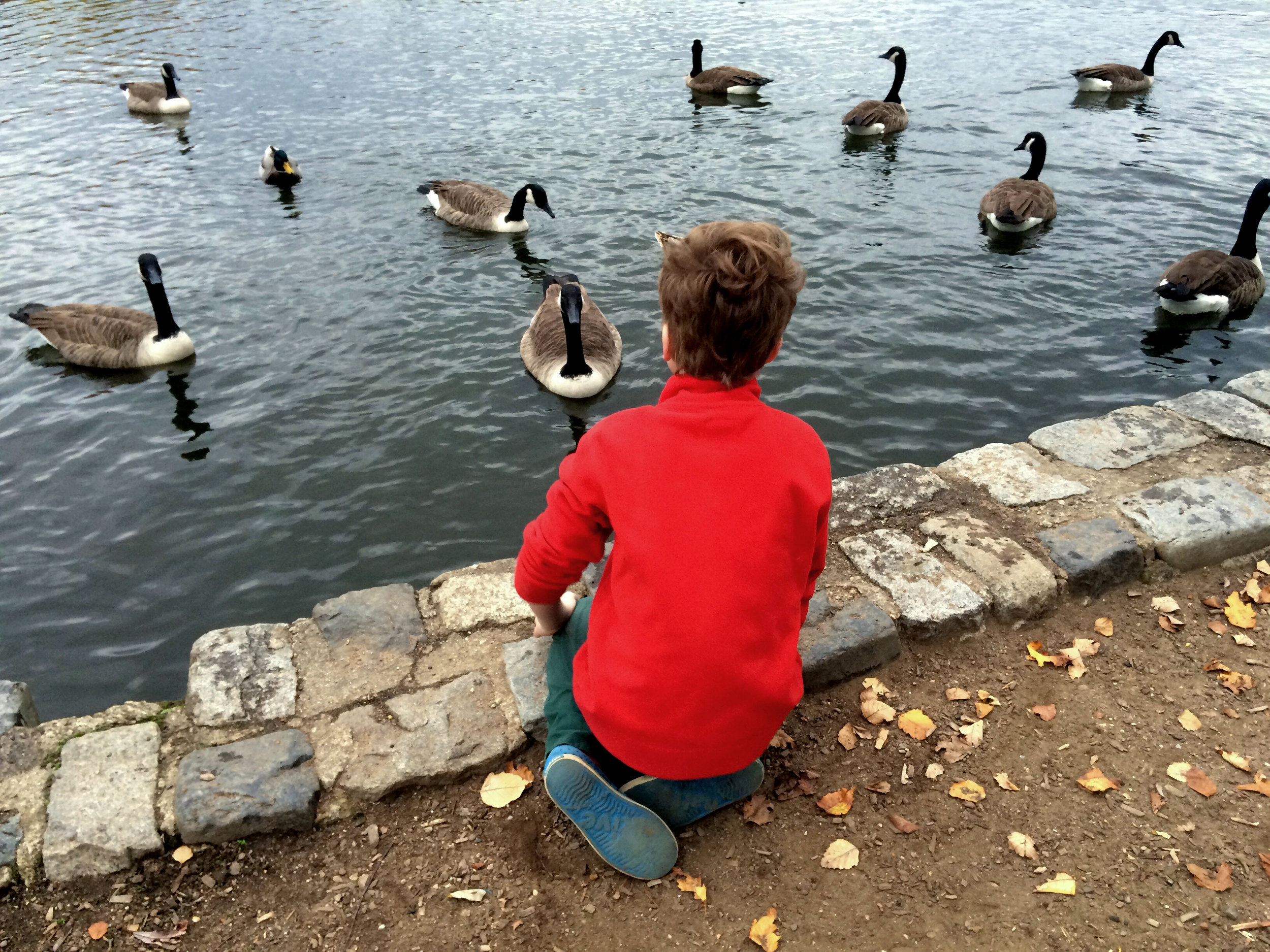 "Let's see the ducks," C says. It's actually more of a demand, and it's the same each time we're at this particular playground, usually after he's had his fill of the cacophony and chaos of other children.
"Let's see the ducks," C says. It's actually more of a demand, and it's the same each time we're at this particular playground, usually after he's had his fill of the cacophony and chaos of other children.
We walk a couple hundred yards down a gentle hill to the pond where the "ducks" are. Actually, they're mostly geese with a few ducks and an occasional swan thrown in for good measure, but "ducks" is C's shorthand.
The waterfowl congregate in the water before C, hoping he'll throw some bread in the water as most other people do. Instead, C orates.
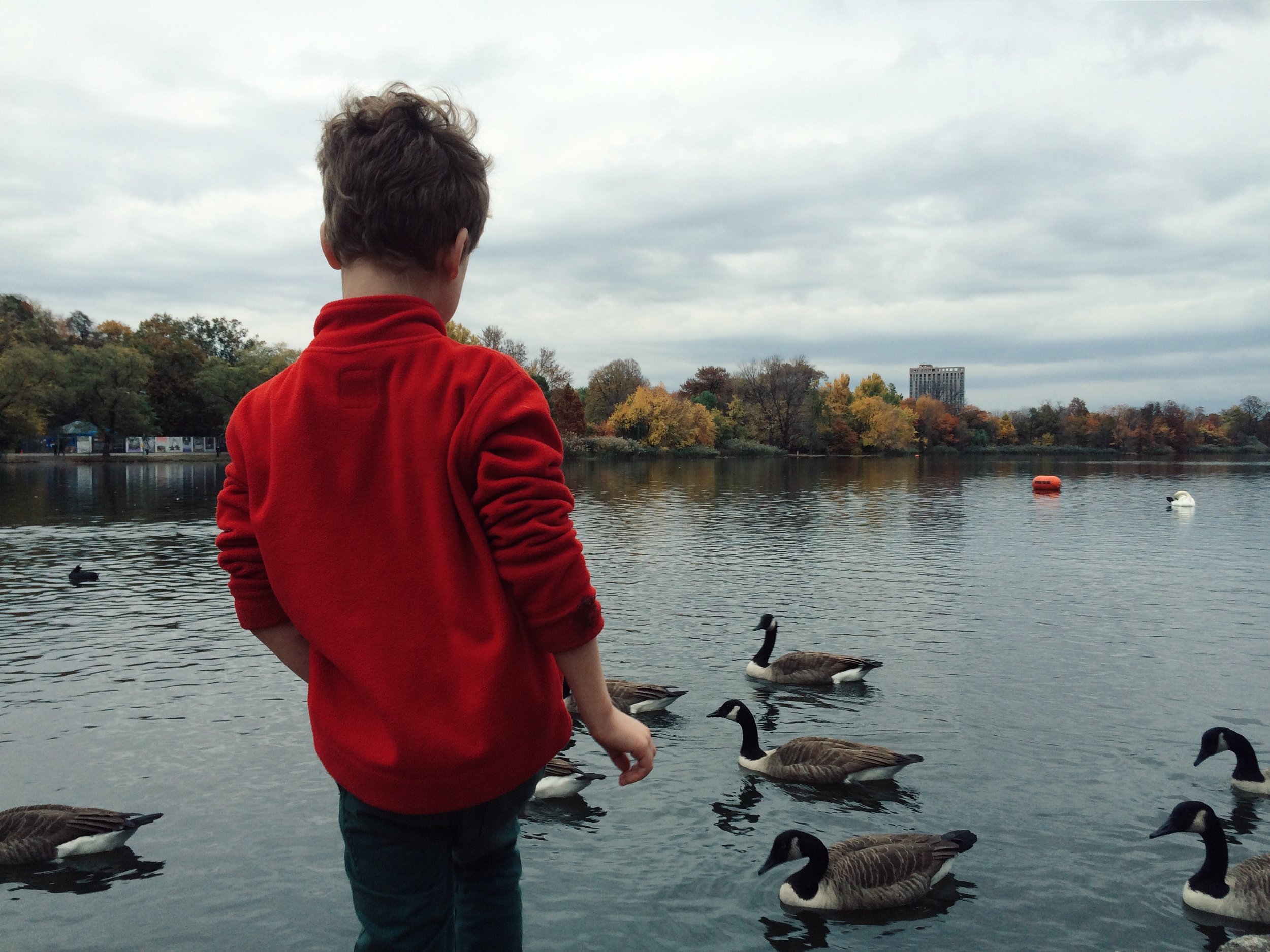
Unable or unwilling to talk with the other children in the playground, he has no problem speaking to the birds floating before him. "Hello, ducks!" he says brightly.
He'll pick one out and ask, "What days do you want to be line leader?" (He's obsessed with being line leader at school, so naturally he assumes everyone else — including the "ducks" — must be as well.)
Sometimes he'll give one of them a name. On this particular day he christened one, "Duck Bird Fundun." Although the goose doesn't know it, this is quite an honor: "Fundun" is C's pretend surname, so that makes the bird a member of his family.
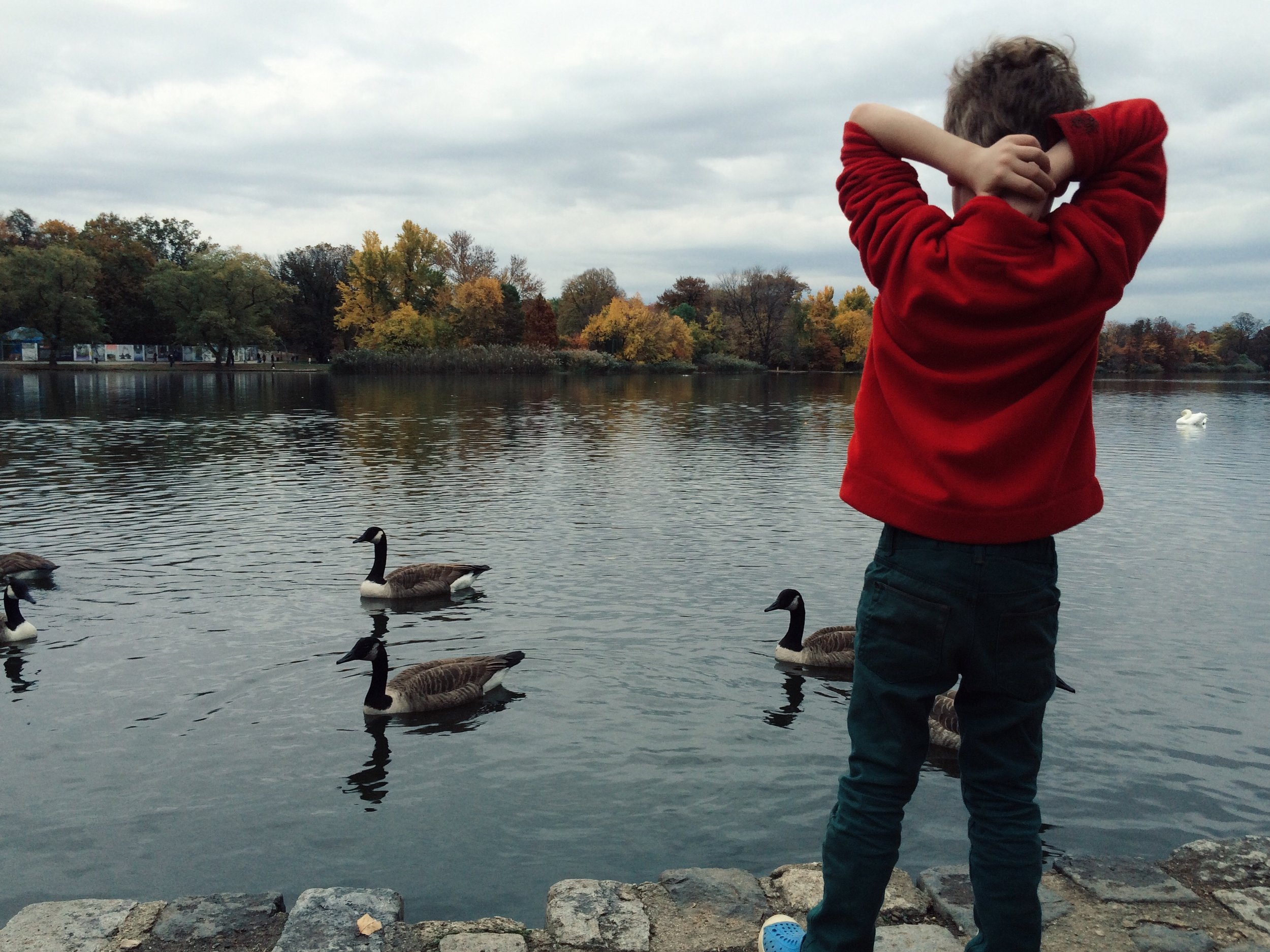
When no breadcrumbs are offered, the geese eventually grow impatient and start to drift away. Concerned he's losing his audience, C picks up some bits of rock and bark and throws them in the water. He's pleased with his strategy as the geese swim back eagerly. He's not teasing them; he just assumes their joyful paddling and honking mean this is what they want. Upon realizing the ruse, the geese swim away for good, C staring at them slightly confused.
...
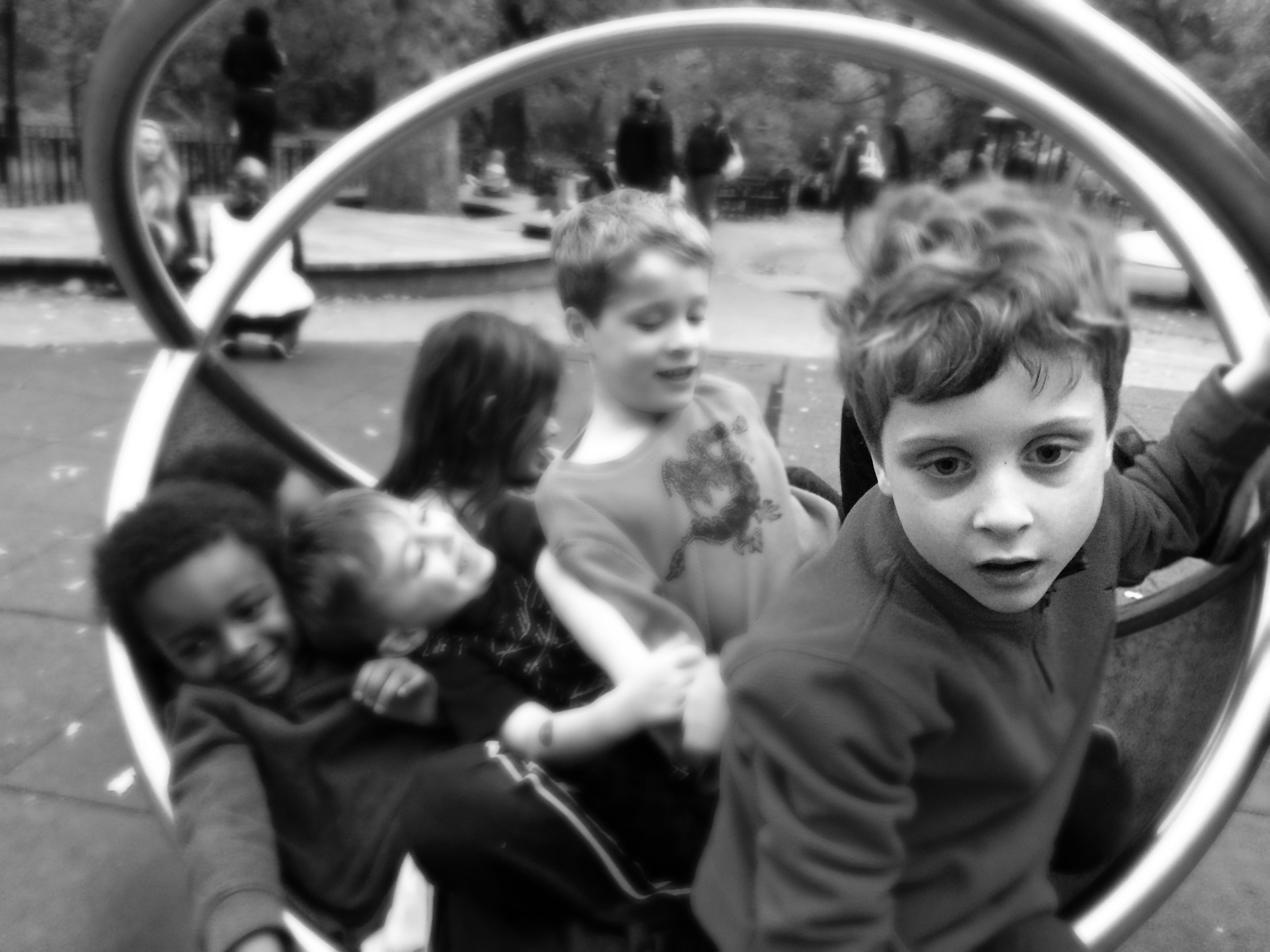
Last night I pondered C's affection for the geese. He's not that fond of other animals; in fact, he wouldn't even go near a friendly, trained aid dog at a recent autism event. I think he likes the geese because they gather around him, but never get too close. They won't leave the bounds of the pond, and yet they swim just close enough to give him the sense of connection he desires. Push-pull. Engaged but at a distance.
Maybe if the children in the playground were a little more like the geese — willing to get close without intruding — they'd have better luck with C, too.

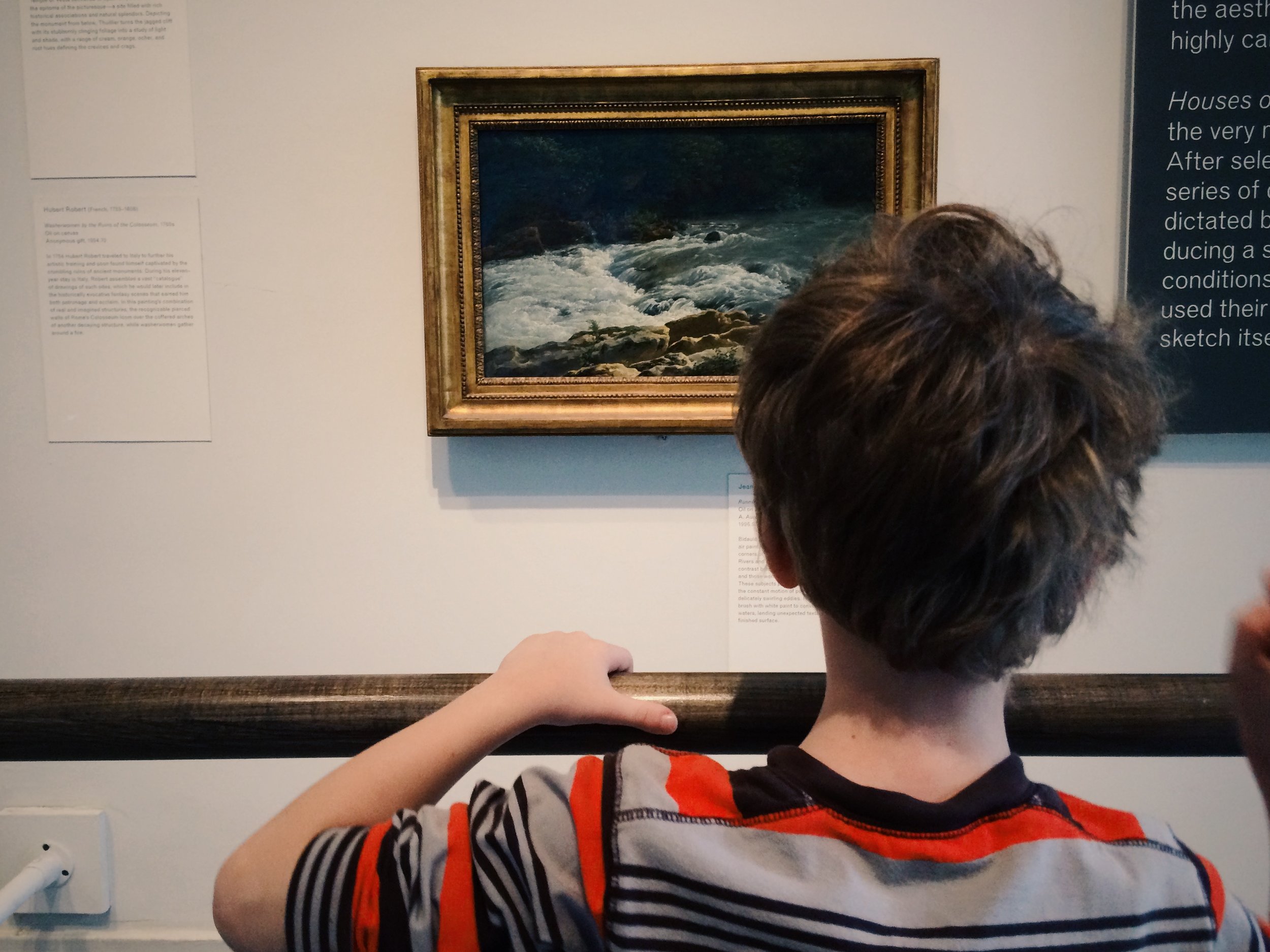 C recently asked to go to the museum "to see the pretty pictures." Mind blown. So off we went.
C recently asked to go to the museum "to see the pretty pictures." Mind blown. So off we went.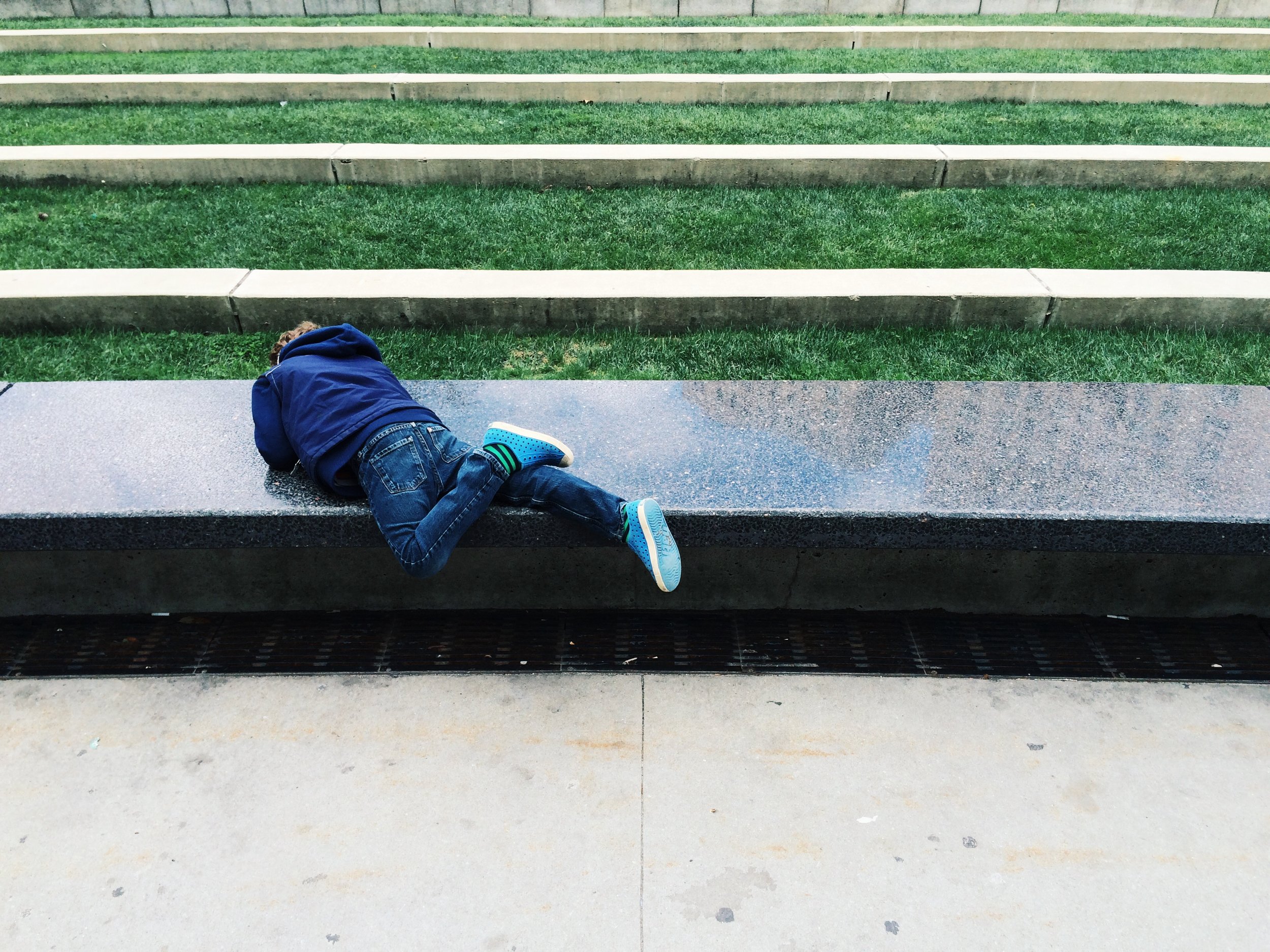

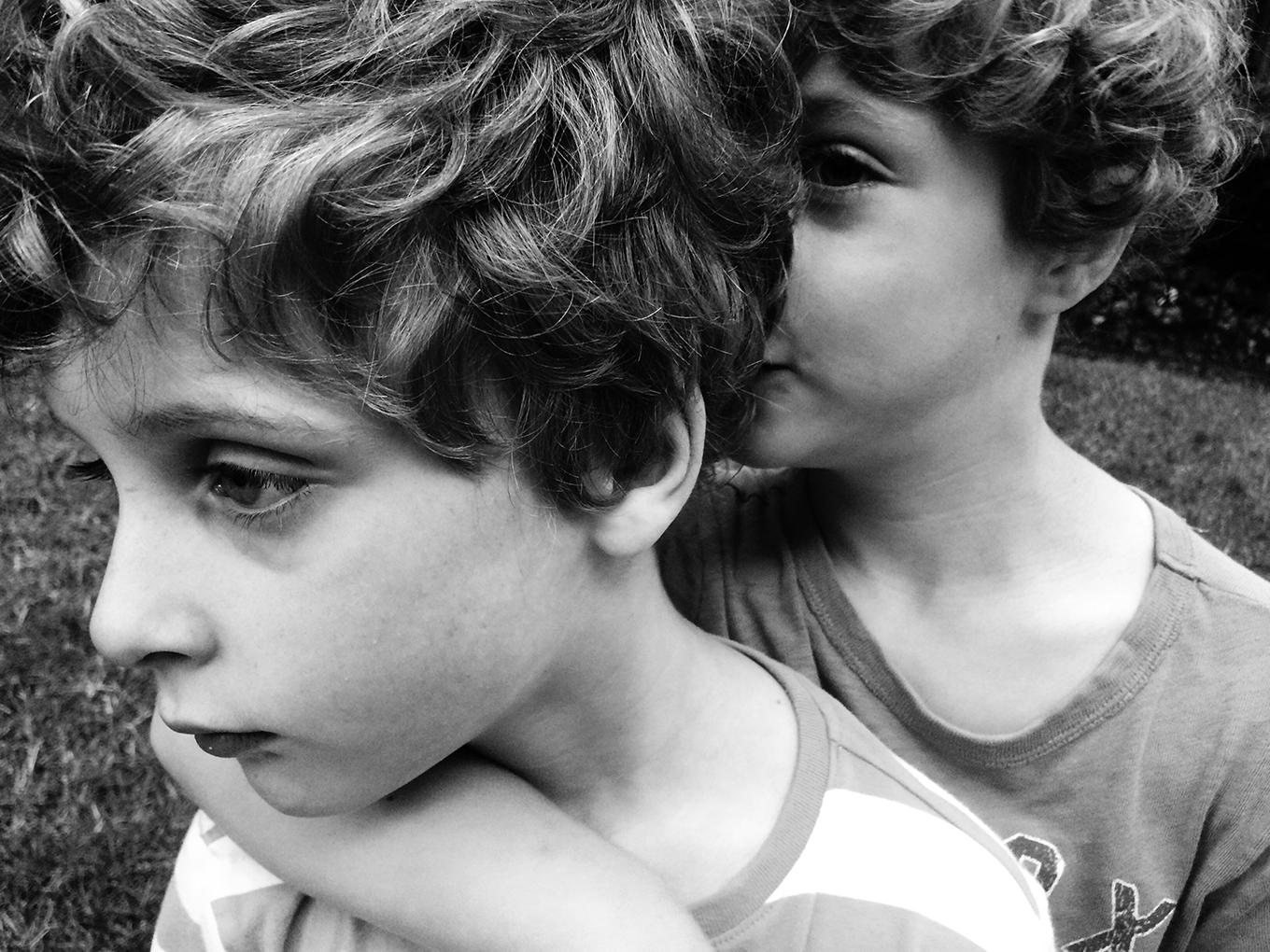 Parents occasionally write to tell me their child was just diagnosed with autism, and in searching the Web for insights they found my blog. They often express fear and sometimes sorrow, and ask if I have any advice.
Parents occasionally write to tell me their child was just diagnosed with autism, and in searching the Web for insights they found my blog. They often express fear and sometimes sorrow, and ask if I have any advice.